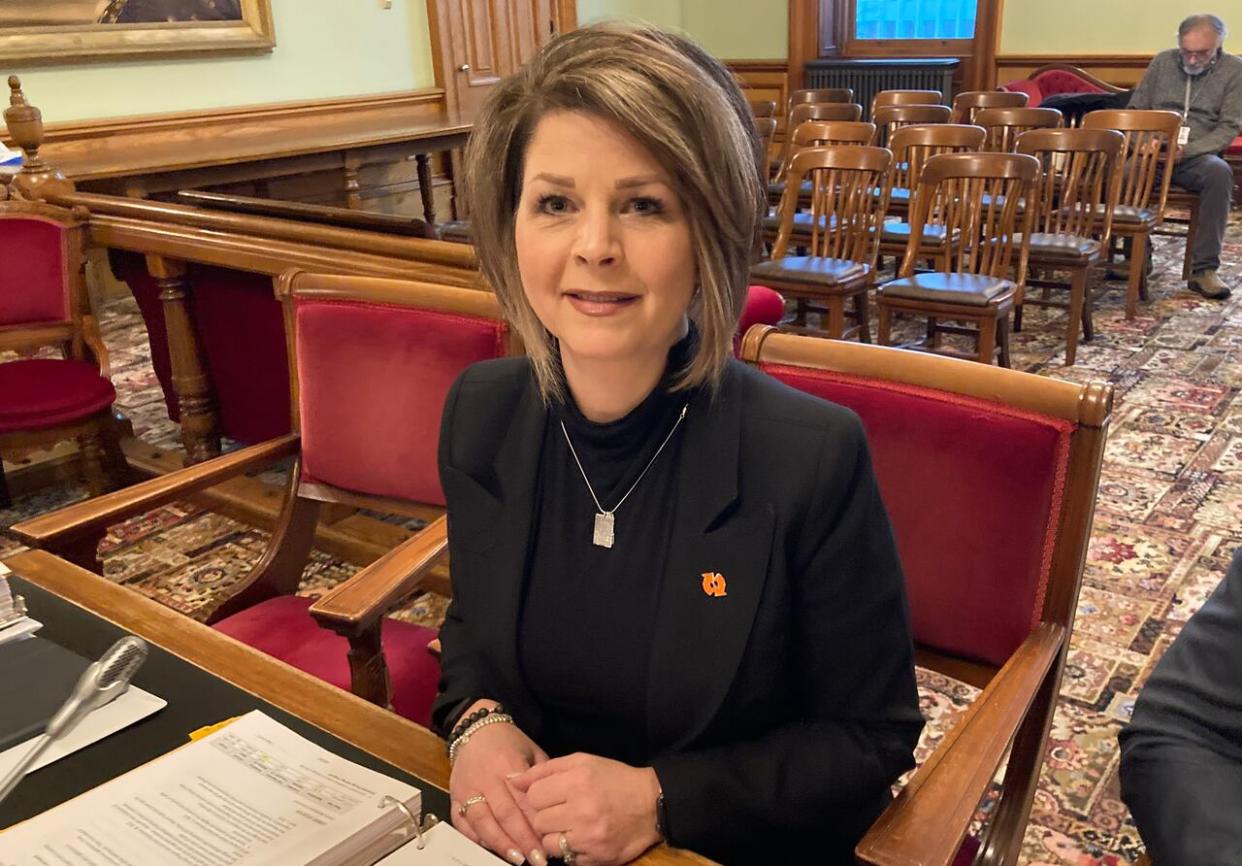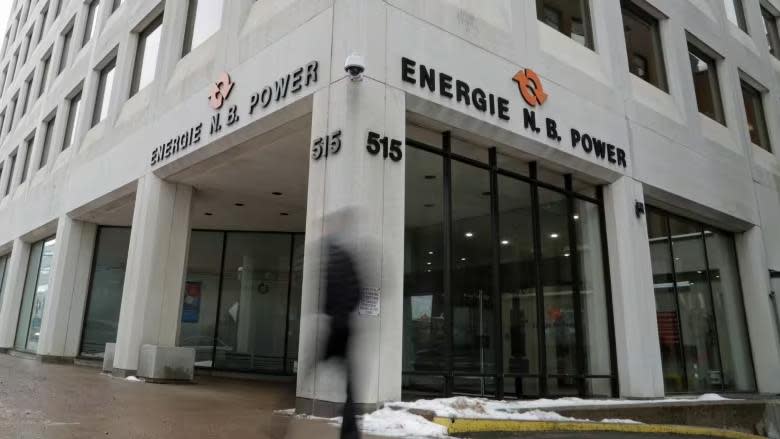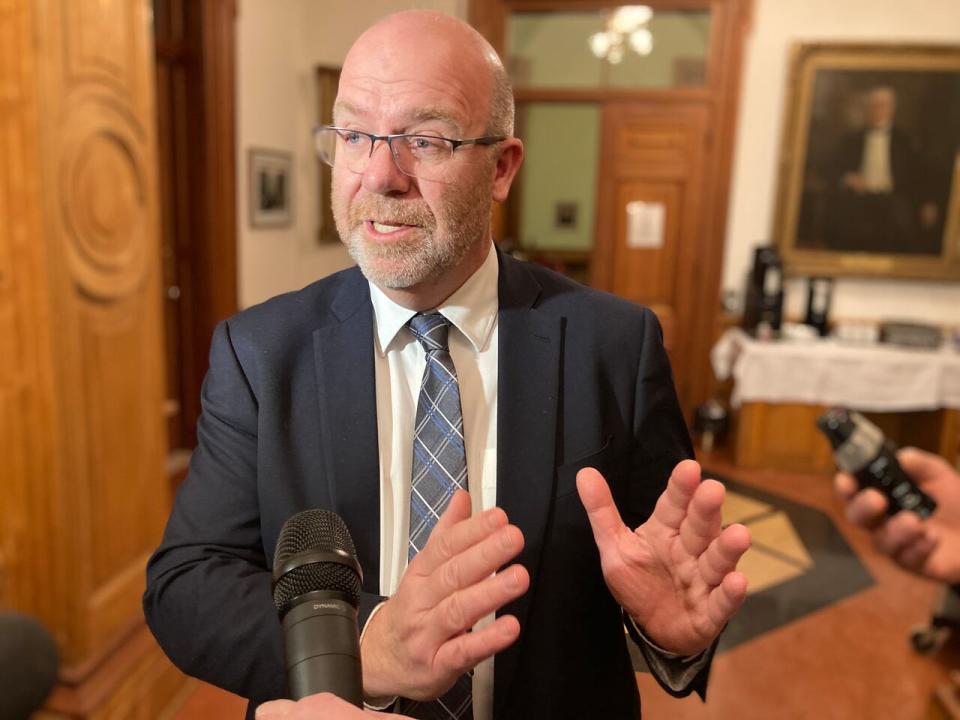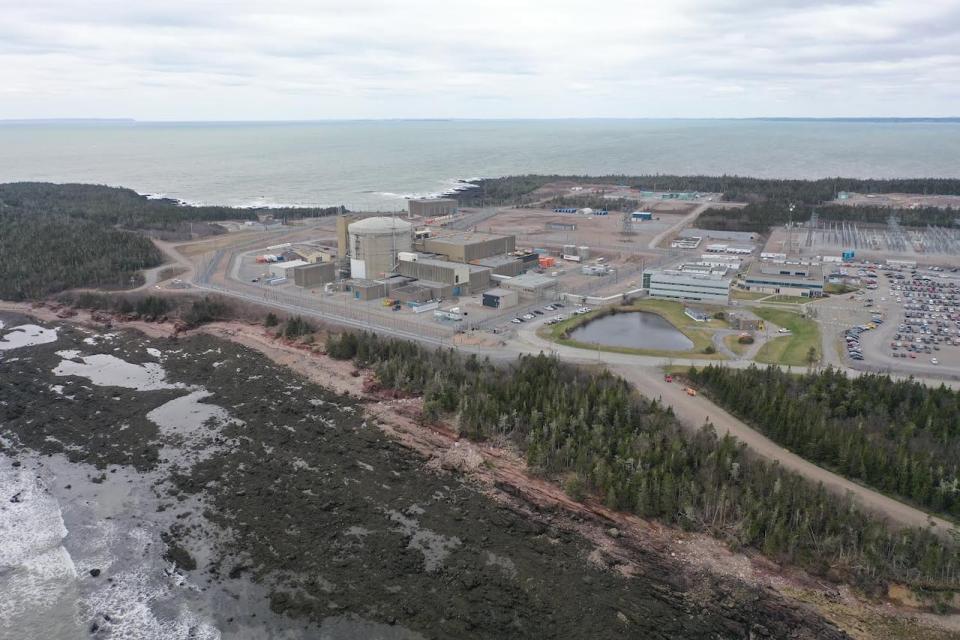N.B. Power CEO says she felt 'relief' when province changed debt target

- Oops!Something went wrong.Please try again later.
A year after blaming artificially low power rates for N.B. Power's dire finances, the utility's CEO says she was relieved when the Higgs government pre-empted a major hike designed to tackle its massive debt.
Lori Clark told a committee of MLAs that her officials were speaking "regularly" with the government last fall about how to avoid three consecutive annual rate increases of 12 to 13 per cent that it needed to hit a 2027 debt target.
"We were having ongoing discussions with government and we had proposed a number of options that could work, and one of those options was changing the 2027 date to 2029," she told the legislature's public accounts committee.
The province issued the directive last September, just nine days before the utility was due to file its rate application with the Energy and Utilities Board.
The directive forced officials to miss the filing deadline as they scrambled to recalculate a more modest rate increase — a delay that its lawyers told the EUB would have the "deleterious impact" of postponing the hike and potentially costing it $32.6 million.
Clark said, however, that the directive did not catch her off guard. "I wouldn't say 'surprise' because we had been talking about all the different options we could have used," she said. "If you're asking me the feeling I had when I got it, it was one of relief."
Last year, Clark told the same committee that years of rate freezes or caps, imposed by provincial governments, had deprived N.B. Power of the revenue increases it needed to keep its debt under control.

A last-minute directive by the premier last fall to reduce N.B. Power's rate hikes for customers cause it to miss a filing deadline with the EUB. (Michael Heenan/CBC)
"Rates have been lower in hindsight than they otherwise should have been for the past 12 years," she said at the time.
"Had we put in higher rate increases our debt would be lower."
But Friday, Clark said lowering the debt was just one of "several factors" the utility has to consider, alongside the more immediate impact of rate hikes on customers.
"We certainly were struggling with how do we manage the rate increase for New Brunswickers and doing everything we possibly could," she said.
"So we certainly welcomed the directive that came from government."
Opposition members call directive political
Liberal MLA and energy critic René Legacy said he believed the government issued the directive last fall because Premier Blaine Higgs was considering a fall election and wanted to avoid a controversy over rate hikes.
"To me this feels like some form of political interference," Legacy told Clark.
"What we were most concerned about was the impact on New Brunswickers," the CEO responded.
"It was all around thinking about our customers and how significant this rate impact would be on them."

Liberal MLA and energy critic René Legacy called the premier's pushback of the rate hike political interference. (Jacques Poitras/CBC)
The directive put off a deadline for N.B. Power to reduce its debt to 80 per cent of the total value of the utility from 2027 to 2029, allowing a more modest rate increase application this year of 9.25 per cent.
Energy Minister Mike Holland said at the time the decision was "not politicking at all, not so."
But earlier this month, the Progressive Conservative Party promoted the directive, saying Higgs had "helped save ratepayers" from a larger hike.
Coon called the directive "completely political," and Legacy said the impetus for the delayed debt target clearly came from Higgs.
"It's all related to the premier [who] wanted to go into an election in the fall and didn't want to have almost a 40 per cent hike over the next three years hanging over him, so he tried to find a quick fix."
New Brunswick Auditor-General Paul Martin warned last December that if N.B. Power didn't get its debt under control, the province could be forced to bail out the utility.

Energy Minister Mike Holland dismissed the suggestion that the change in rates was political. (Jacques Poitras/CBC)Clark said Friday that the 80 per cent debt-to-equity goal is more than a decade old and a lot has changed since it was established, including the COVID-19 pandemic and a new approach to the proposed refurbishment of the Mactaquac hydroelectric dam.
"We always have to look at what's happening today. It was a good plan when it was put in place back in 2011 by the government," she said.
"Pushing it out by two years, we are going to be in much better shape and it will not have an impact overall on our ability to service our debt and meet our customers' needs in terms of reliability and energy security, and it was the best for our customers."
Point Lepreau deal questioned
Clark was also questioned Friday about plans for the Point Lepreau nuclear generating station, which she said is on track to operate at 88 per cent capacity this fiscal year — well above the average of 78 per cent over the last five years.
She confirmed N.B. Power is negotiating a deal with Ontario Power Generation that could see the two utilities become joint owners of a new entity that would run Lepreau and sell its electricity exclusively to the New Brunswick grid.

Clark also faced questions about plans for Point Lepreau, saying that a deal is being negotiated with Ontario Power Generation for shared ownership with N.B. Power. (Shane Fowler/CBC)
"This is not a sale. It would be a partnership," she said.
OPG's financial stake could provide N.B. Power with an infusion of capital that might improve its debt picture and lead to lower rate hikes in the future, she said.
"I would want to be able to show New Brunswickers that that rate trajectory will change, and will be better, or at least not be worse."
She said staff from OPG, the utility that operates four nuclear stations at the Darlington power plant east of Toronto, have been working to help Lepreau run better.
"We've seen improved performance," she said. "We've seen improved accountability at the station."
Clark also said concerns about keeping rate hikes low in the past had led N.B. Power to fall below the industry average for investing in maintenance of "high-functioning" nuclear stations, something OPG's expertise can now help it avoid.
She said the two companies hope to reach a deal this year but said it was too soon to reveal more about the options they're looking at.
"This is a huge transaction and one that is quite frankly unique to the investment bankers that have been involved and the lawyers that have been involved," she said.
"We're talking about a significant, billions-of-dollars asset, and two nuclear operators coming together and partnering on this asset."

